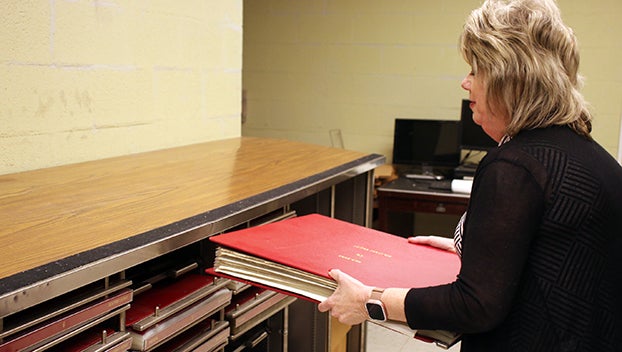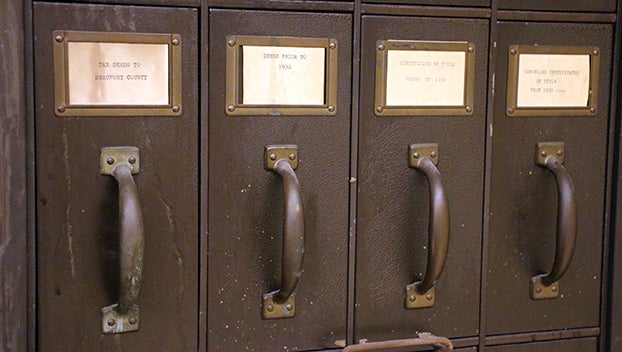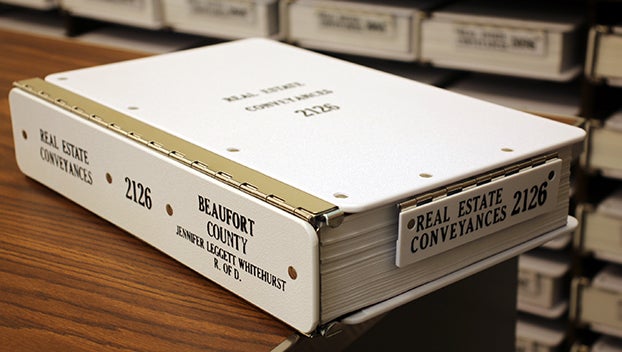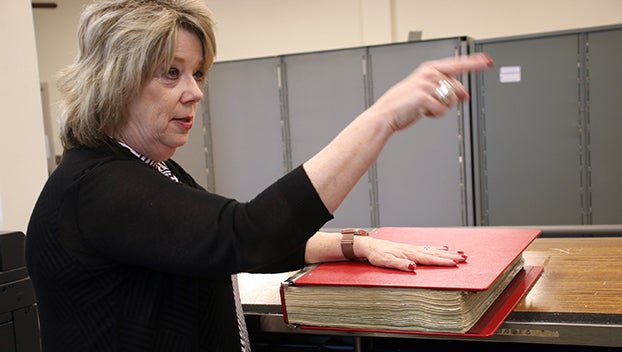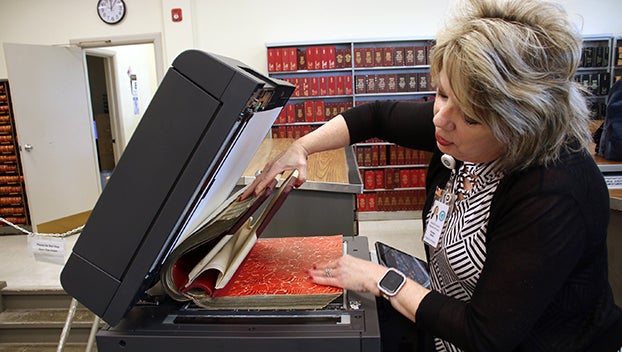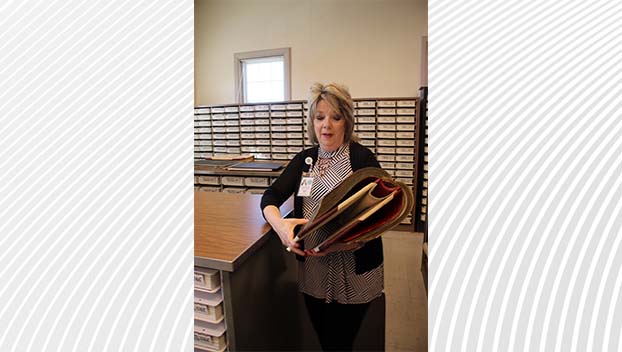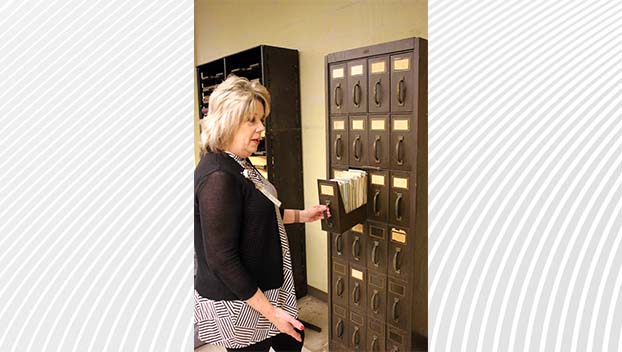Setting the record(s) straight: Register of Deeds shares benefits of e-recording, county commissioner shares concerns
Published 4:30 pm Friday, November 10, 2023
|
Getting your Trinity Audio player ready...
|
E-recording at the Beaufort County Register of Deeds Office has happened since 2020; however, it has become a hot topic at the Nov. 6 Board of Beaufort County Commissioners meetings.
E-recording is an alternate document delivery option, the American Land Title Association describes. “The documents are scanned, become images and are submitted securely via a secure internet website to the courthouse. The image is recorded at the courthouse and returned to you through the same secure internet connection.”
Real estate documents are scanned then uploaded online to be viewed by the Register of Deeds Office then filed into a recording software system. A person submitting a document will receive an image with a recording stamp and information displayed. This makes the document the original copy. The amount of time it takes to have a document submitted to the Register of Deeds office is significantly reduced from days and weeks to minutes or hours. This new process reduces the number of rejections and returns rejections in a much more efficient manner, the American Land Title Association explains.
Beaufort County Register of Deeds Hon. Carolyn Garris has been working since she was appointed on Jan. 3, 2023 to continue digitizing real estate records.
“We are modernizing the Register of Deeds office, and I am very proud of that fact,” Register of Deeds Carolynn Garris said at the Nov. 6 Beaufort County Commissioners meeting in reference to adding services and digitizing documents.
Beaufort County is one of 96 counties in North Carolina to e-record real estate documents. The only counties not e-recording as of September 2023 are Warren, Tyrell, Hyde and Jones.
The Beaufort County Register of Deeds office stewards some of the most important documents in a person’s life such as birth, marriage and death certificates as well as deeds, mortgages and deeds of trusts, powers of attorney, plats, assumed names Uniform Commercial Code financing statements on personal property and military discharges. They also keep records of all notaries commissioned in Beaufort County and administer notary oaths, per their website.
Most documents can be accessed online via the Beaufort County Register of Deeds’ website, https://co.beaufort.nc.us/237/Register-of-Deeds
Between Jan. 3 and Nov. 2 of 2023, the local register of deeds office has digitized 5,285 real estate documents or about 26,228 pages. Copies of these records are uploaded to a server and the Cloud in addition to being placed on microfilm. Documents prior to 1968 are not online. The public will still have to access them in person or ask that those documents be scanned by the Register of Deeds and sent to them.
At this time, only real estate documents are e-recorded at the Beaufort County Register of Deeds office with the exception of maps. There are plans to incorporate births, deaths and marriage records in the future. Garris said e-recording of birth records will begin next year.
Garris shared with county commissioners that there are still 620 deed books from 1917 to 1967 that need to be digitized. An estimate of $123,900 was given to Garris by Courthouse Computers System to digitize those books. It would take an additional, estimated $30,000 to digitize land record index books from 1917 to 1967.
Though e-recording is becoming a common practice across the state it is not without opposition. Beaufort County Commissioner Hood Richardson is opposed to the idea of e-recording real estate documents without the additional step of printing hard copies. During the county commissioners meeting on Nov. 6, he stated that as a land surveyor he finds e-recording beneficial for work he does across 20 counties. He is able to do research for surveys using e-recordings; however, he has reservations about not having hard copies of real estate documents in the future.
“I use the electronic filings in about 20 counties for my research to do surveys, and I love using them, because I don’t have to go there. I want to continue doing what we’re doing, but I want the public to be protected and you are not protected with doing the minimal…what she’s doing is the minimal system that the state of North Carolina requires and that’s not good enough for the citizens of Beaufort County,” Richardson said.
Richardson pointed out obvious concerns about e-recording which are the potential for loss of electricity and ransomware attacks.
“None of the systems the Register of Deeds has talked to you about – even her backup systems works when the power is off,” Richardson said.
He continued to share his belief that the best protection of documents at the Register of Deeds office is to continue e-recording, sending copies to the State Archives and printing hard copies that are searchable with an index.
“If it’s all out there in hard copy and it’s all out there in indexes, you can cross reference. You can search. You can verify. You can’t do it when it’s on an electron. You can only get good information.”
Last month, Register of Deeds offices in Cumberland and Hoke Counties were attacked by ransomware, according to local media outlets. It is unclear whether the attack was intentional or random.
Garris assures that if the Beaufort County Register of Deeds office was ever hacked, an Information Technology team she works with would quickly restore the system.
Garris reiterated that county documents are backed up locally on server, stored in the Cloud and placed on microfilm. Also, all documents in the Register of Deeds office are stored at the North Carolina State Archives.
Even when the software at a Register of Deeds office is down because of a ransomware attack or the loss of electricity, the public can still access documents in-person.
“If somebody wanted to record, we could still record whether our system is up or not. We won’t be able to put it online, but it’s documented when and what time it came. So, the business would not stop,” Garris said.
With these concerns in mind, Garris believes e-recording remains a solution to her office’s glaring issue – they are out of space to store more hard copies of documents.
“We are out of room,” Garris plainly stated both at the November commissioners meeting and in an interview with the Daily News.
In the current storage area there is a myriad of historic books that weigh more than five pounds each. Garris jokes that anyone wanting to lift weights can go to her office and pick up the heaviest books for free instead of joining a gym.
Downstairs, sharing a wall with the Beaufort County Detention Center, is the office’s basement which contains ten map cabinets, map indexes and original torrens. These are crucial documents the office cannot afford to lose. Garris would like to see these items moved upstairs to a controlled environment – away from the threat of flooding, moisture damage, temperature damage.
Garris herself has “mixed feelings” about not printing hard copies of real estate documents, but if they are not able to move into a larger office, space will always be an issue. “You’re eventually going to outgrow.”
Therefore, the Register of Deeds would like to see a new facility built where they have enough storage space. County Commissioners have discussed the possibility of additional space for the office during discussions about updates to the Beaufort County Detention Center.
It’s important to note that e-recording would not get rid of these historic books and documents. These books are permanent fixtures in the office’s storage area. E-recording helps with future documentation. The Register of Deeds office will continue to accept documents delivered in person.
Before Carolyn was appointed, the previous Register – Jennifer Whitehurst – posted notices in the office that “hard copies would not be printed after the 31st of December (2022). She told the staff to fill that last (real estate conveyances) book…until it was full. The last document is dated Jan. 4, 2023,” Garris said.
Garris has had to correct misconception that she is not recording documents. The Register of Deeds is recording documents; however, she is not printing hard copies of real estate documents with the exception of maps. They are being e-recorded.
“If I was not recording deeds, the [Beaufort County] attorneys would be on the courthouse steps waiting to drag me out,” Garris said. “I have not broken a law, I am not a criminal. No matter what someone may think.”
An email sent by Charles Szypszak, an Albert Coates Distinguished Professor of Public Law at UNC Chapel Hill’s School of Government to County Manager, Brian Alligood stated, “A register is not required to keep real estate records, whether received in paper or electronic form, in paper form. Most registers across the state do not keep paper versions of at least some permanent real estate records, and this is increasingly the case due to space limitations, advances in digital storage, and transactional expectations for electronic commerce.”
Therefore, having e-recordings of real estate documents that can be sent or printed upon request is legal and compliant with the North Carolina State Archives. It is not required to do the additional step of printing a hard copy, adding it to a physical book and placing it in storage in the register’s office.
The Beaufort County Register of Deeds office is located within the county courthouse at 112 W 2nd Street, Washington. It is open Monday through Friday from 8 a.m. to 5 p.m.


